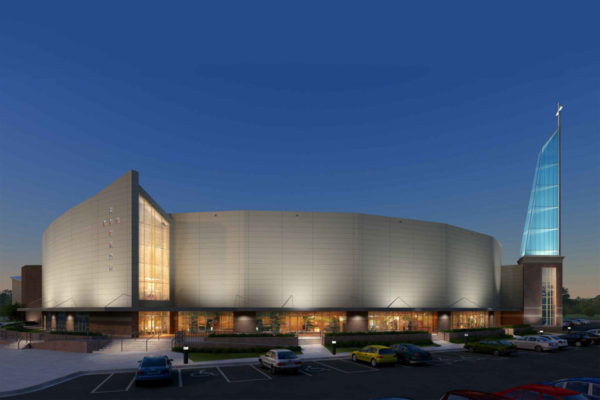Associational ministry is a work of extremes; we work on the peaks and in the valleys of church life. When a new church is planted, or finds cause for some new ebenezer, we are there to celebrate the great thing God has done with energy and vibrancy, like a friend calling to congratulate new parents. When a church meets crisis or closes, we are there to join in mourning, with all the accompanying anger and disappointment death and difficulty always bring. The vast majority of our time is spent walking beside those who have chosen to travel these trails, lending whatever aid we can to rally them to the top. So, naturally, this is the question everyone has for us: how do I avoid the valley, and how do I reach the peak? A large and largely uncomfortable part of the answer is this: God does what He wills.
Now, of course, that answer is like telling the man considering engagement that he “will just know” whether or not the time or the woman is right. There are many more practically helpful answers, and we spend most of our time on those answers—nine marks, or twelve marks (Leroy has boiled it down to five) of church health. This is good. We should give the practical answers, but let’s dwell on God’s will for a moment and see if we can’t see something of value here, as well.
The occasion for this article is the opening of Franklin Avenue Baptist Church’s new facilities in New Orleans East. The mayor, the congressman from the district, and many other dignitaries attended the opening, and there was a great celebration. It is now the fourth largest venue of any sort within the city limits, right behind the three stadiums housing our professional sports teams, and the opening service was standing-room-only. In a time of church closings and staff layoffs, many have predicted that Franklin Avenue’s hopes of transitioning to a single Sunday service at this new location with 3,500 seats may happily be dashed.
New Orleans is not known as an easy place for protestant church work, so when a street preacher from the Lower Ninth Ward of New Orleans began leading the modest congregation in a poor, black part of town—well, let’s just say the mayor wasn’t at that first service. Yet the congregation grew, along with influence in the community, national attention, an historic SBC presidency, and many other trappings of the mountaintop. When Hurricane Katrina decimated the city, many churches failed as their buildings fell and congregants disbursed or passed. FABC’s part of town was particularly hard-hit, and yet, they came back somehow stronger. They hold a regular baptism service every month, planned at the beginning of each year—they have yet to reschedule.
A lot of pastors want their churches to be like Franklin Avenue. (We would love to see a hundred Franklin Avenues, all over New Orleans and Louisiana. Father, please, grow your Church here for the sake of your name and those who don’t yet know you.) They ask us, what are they doing differently from us? How can we improve? There are many practical things we can and do say in response—Franklin Avenue labors faithfully and wisely—but we also have to agree with their pastor, Fred Luter, in his sermon yesterday: “God did it.” Sometimes God chooses a person and a congregation and decides, “I’m going to do something special here.”
In all of our wisdom, in all of our labor, it is necessary to remember, “unless the Lord does raise the house, in vain its builders strive.” It’s a hard truth that strikes against the grain of our cultural structures, which are talent-obsessed and results-driven, but it’s a Biblical truth. At some points, and I think we’ve reached one of these points this weekend, the only appropriate response is simple praise. Father, you have done great things with this church and with this pastor. We are glad. We pray that your work would continue here long after they, and we, have passed, until You come again.



